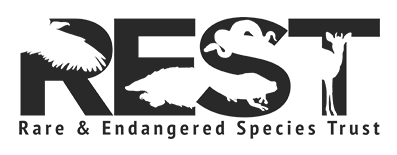Education
REST believes strongly in education for a variety of stakeholders including children, land managers, law authorities and the general public. These people young and old then go into their communities and spread conservation messages. Now that we are settling into our new home, we hope to expand our school and farmer visits to the centre.Herero Community Outreach
We have worked with traditional leaders in the Herero community to help save pangolins and this has had far reaching impacts. Historical traditional Herero belief is that when a pangolin is found in the community it is taken directly to the chief. He then puts it into the fire and everyone consumes some of the meat for good luck. REST is in a very unique position to allow very limited and controlled close up experiences with key ambassador pangolins that we are raising and are not afraid of humans like their wild counterparts.. Thus community leaders can visit REST, see these animals first hand, learn of their importance to the environment and often ask to have a picture taken with them since they are not afraid of human contact. This is very important, as they believe that this picture will bring more luck to the community than an eaten pangolin. Many have then asked their members to leave the wild pangolins in nature so as not to delete the benefits they believe they derive from the photo. Whether the photos do in fact hold any powers, is not for REST to determine. What is important is that pangolins are being saved as traditional beliefs are adjusted but not obliterated.


Stakeholder Awareness
REST’s Board of Directors knows many of the stakeholders in the country. We attend farmers meetings in districts across the country and attend local and national agricultural shows with our live educational non releasable Cape vulture – Nesher.
Educational talks about vultures and poisons are given approximately once a week at REST headquarters or around Namibia to school children, environmental groups and farmers groups.

SOS – Save our Species Campaign
In 2004 REST launched the Save Our Species (SOS) Campaign school art competition which aims to raise the awareness of the plight of rare and endangered species with young Namibian children. Local school children were provided with information on our five ‘flagship’ species, as well as paints, brushes and cotton school bags produced by a local woman’s group. The children were then asked to paint their favourite species on the bag.
The second phase of the campaign focused on students at primary and combined schools in Grades 3-to-7. Seven towns were selected that fall within the key agricultural and farming areas covered by the overall Poison and Vulture Awareness Campaign. The Disney Wildlife Fund supported this special work reaching an additional 7,500 children.
By educating, informing and involving children in these towns, the awareness of the plight of rare and endangered species is raised in the minds of future generations of farmers and land users. Participation in the competition by children at these schools has helped bring the message to approximately 10,000 children. Awareness and education of a wider Namibian and international audience was reached through the production of the winning designs printed onto 2000 eco friendly cloth shopping bags which are sold throughout tourist and grocery shops in Namibia. This is a perfect alternative to the plastic bags usually used at the shops which increase litter and are not environmentally friendly.

Assisting Farmers – Predator ID
A laminated predator ID sheet has been developed to assist farmers and staff in identifying the predator responsible for preying on their livestock. This increase in correct information has allowed farmers to act ethically in determining their response and has begun to decrease poison use.
